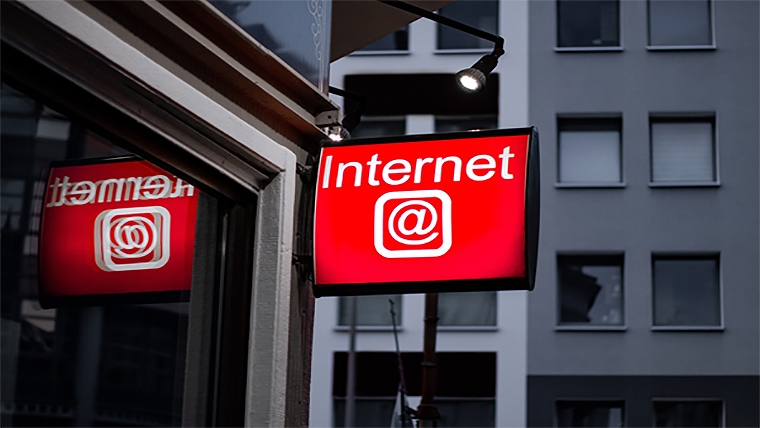
While everyone is dealing with the immediate effects of COVID-19 and the massive disruption it is causing to daily lives, a number of commentators are starting to make predictions about how life and work will change after the pandemic has subsided.
Technology-enabled transformations that previously seemed impossible to implement on a large scale will become business as usual.
Things that can move online will now do so out of necessity. We are seeing this already with the rapid transition to telemedicine, online learning and remote working.
Other aspects of our lives which we accepted as inevitable like global supply chains, mass tourism, business travel and large scale commercial real estate may now be challenged.
Questions about supply chain resilience
Globalisation has made it possible for companies to establish multi-country supply chains that enabled trade efficiencies and relatively low-cost growth. Jonathan Brill, global futurist at HP points out that the downside of these complex international supply chains is that they increase the impact of “synchronous economic shocks” such as the one we are experiencing. Many companies are finding out some of these supply chains were not as resilient as they thought as closures along the chain lead to shortages. Shannon K. O’Neill, a senior fellow at think tank Council on Foreign Relations, suggests that after the current crisis passes companies and even governments will insist on domestic back up supply for certain industries. As a result, companies may trade off a level of profit for supply stability.
Removing barriers to digital transformation
Most commentators seem to be in agreement that after the current huge shock to global markets and populations, the pandemic will remove existing barriers to digital transformation, allowing many sectors that had previously resisted change to innovate. Resistance to new technology tends to reduce once people become accustomed to using it in their daily life. Collaboration tools like Zoom reflects this shift. For many people Zoom video calls are now being used every day for work, education and to keep in touch with family and friends, and its share price reflects this – doubling year to date.
Telemedicine’s moment to shine
Telemedicine has been around for years but was not widely used prior to the current crisis. In the US, CNBC reports that last year 90 percent of workers in the US had access to telehealth, but only 10 percent used it. In China, telemedicine platforms like JD Health have experienced a tenfold increase in consultations since the crisis began according to The Economist. The longer term-term benefits of shifting non-urgent medical consultations online and leaving the face-to-face interactions for the patients who need critical care could be huge in terms of streamlining the system and reducing costs.
The changing face of online education
The sudden mass closure of schools and universities in New Zealand and elsewhere has required a vast number of classes and courses to be delivered and assessed virtually. Based on a 2018 survey from Times Higher Education (THE), most tertiary educators have anticipated online degrees would be widely available by 2030 even for the elite universities. However many felt it would never be the preferred option for students who would still opt for face to face learning where possible. That sentiment may be changing. According to THE, senior figures in the sector are now expressing the view that while physical campuses will still be important “there may be no going back to a fully analogue model of university instruction”.
Challenges and benefits of remote work
Remote work has been growing for a number of years and saw spikes in popularity after the SARS epidemic and 9/11. Companies around the world are now getting to grips with the challenges of having a full-time distributed workforce. Once the current crisis passes, they will also be well aware of the potential cost savings, from reduced requirements for office space to increased employee productivity.
Telecommuting is not an option for everyone however and while knowledge workers will find they can reasonably easily pivot to remote work after the initial disruption, other workers who may not have an internet connection, let alone a home office, will struggle to make the shift without support. The current shock has exposed the huge inequalities that exist in many countries, where the working poor often struggled to survive on their earnings even when things were good. After the crisis has subsided it is likely that certain concepts which were not considered mainstream like universal basic income and (in the US) mandatory paid sick leave will become central to policy debates.
Whatever happens, we are unlikely to go completely back to business as usual.
However, as futurist and geopolitical expert Jamie Metzl pointed out at the recent COVID-19 Virtual Summit, we are in a position to make it a change for the better.
Unlike after the Spanish Flu in 1918 when only 20% of the world were literate “We have more educated people, stronger connections, faster sharing of information, and more technological tools and scientific knowledge than ever before in history”. While no one would have chosen the terrible situation we find ourselves in, it could be that all of the digital innovation of the last decade has been preparing us just for this moment.
*Alison Brook is from the Knowledge Exchange Hub at the Massey University campus at Albany, Auckland. She is on the GDPLive team. This article is a post from the GDPLive blog, and is here with permission. The New Zealand GDPLive resource can also be accessed here.
16 Comments
Good article.
Face to face meetings are still better in my opinion. Hard to read body language remotely. One would hope that most white collar jobs could go to at least 2 if not 3 days working from home.
This will have economic, social and environmental benefits.
Many of us in IT/accounting/finance have remote-worked for well over a decade. Most ERP's worthy of the name have long since moved to SaaS, as has the server infrastructure (Azure, etc).
Whether or not this opens the door to even further disruption (in terms of redundant office and commercial space) or opens quite another door as it introduces systempunkts (John Robb's term for points where a very small perturbation has wildly disproportionate and negative effects) such as total dependence on undersea fiber cables, is worth thinking through......
I certainly hope so, for my own personal circumstances.
Thank goodness Twyford didn’t get the light rail project started.
Work from home is fine for the white collar workers who could work from home already, but it won't do much for the logjam of blue collar commuters stuck battling SH16 gridlock each day.
Although I will say this: 90% of SH16's issues seem to be caused by Te Atatu. Priorty busway (ala North Shore) with an upgrade path to Light Rail is probably a smart compromise.
Has he ever got anything started?
One possible casualty of any mass move to working from home, whether sometimes or mostly, is public transport. Will people want to pay e.g. $150 for a monthly train pass that they'll use twice a week? Those 10 trip tickets will last 3 weeks instead of one, and bus/train patronage could shrink.
If that happens, will we see a hike in bus and train fares? Will our transport emissions go down as fewer people drive in, or stay the same, as people stop using public transport for their occasional commute and switch to cars?
This crisis could also be a booster for NZ E-Commerce and related services such as urgent couriers.
At the end of the day people need to participate in the economy. Digitalisations efficiency comes at the cost of employment (I would have thought). Wasn't that the point of Nigel Latta's program on the future (lawyers etc losing work to AI?).
Would be great to see lawyers lose work to AI!
I've first began working from home in the early 90's. Our Parnell office wasn't quite big enough at the same time we (our company) weren't quite rich enough to play it with the big boys, so about 3 of us were trialed to work from home. It was life changing for me then, as it will be now for those who are trialing it today. It come with a few conditions but they can be learnt, & quickly. It was also instrumental & one of the key reasons we moved cities in the mid 90's, was the fact that we knew exactly what to do when starting a new business from home. Today, of my 47 years in the workforce, 28 have been from a home based office. If you have to work, it is the only way to work.
I'm in that situation now. I took a punt buying a property close to the furthermost station on a commuter rail service into Wellington. Very long commute times (4 - 5 hours a day) but a trade off was a very cheap mortgage and after some tenure in my new role potential for the odd day at home. But now it's being touted as being the potential norm.
I wonder if the regions could see added housing demand from FHBer's who find themselves working permanently from home, particularly from Auckland where many people live for work but cannot afford to buy.
Looking at Bauer media, sorry for the staff caught in the crossfire but it will be a great chance to bring our mast heads home and reboot them digitally, could be a good opportunity to get a few journos together and build a new business...looking at you Bill Rolston!
Nobody in their right mind would buy one of those magazines. To the best of my knowledge, and this my field of expertise, only one major magazine makes a profit purely on retail sales. The rest rely heavily on advertising which was scarce before Covid, and is now non existent. Bauer shut because of the government publication ban, meaning their lockdown loss was magnified, wage subsidy or not. The government killed the titles, not Bauer.
Rubbish. Those titles were all in yellow pages territory...i.e. minimum allowable print run with declining, grey haired readership, just took a shock to set about what was already unevitible, blame the government or blame the piss poor business owners?
This E-world shall change everything; even today I check online on how to cut my hair..Barbers, you gone matey.
Last night checked youtube how to give nice therapeutic treatment for my wife, Physiotherapist you gone too. Doctors & Nurses soon we don't need you, too. Over rated expensive workers, car mechanics & rubbish collectors. Useless bunch, the self driven truck are on the way with GPS, camera & constant up/download date within your Eproms, SSD drives - And? as we speak, Both Airbus & Boeing are back to do some 'Engineering Modification Instructions' with idle aircraft on Tarmac, soon to make the current expensive troops of Pilots, to fly all those aircraft from each their home flight console. This with the help of current US-AirForce remote drone technology in military controlled facilities, Mr. Trump already? sign this secret opening door directive, the same as when TCP/IP being forced into Academic adaptation from Military in early 70s.. then evolve to the current internet early 90s. - Internet will save the world, even the current Covids are being thwarted by 24/7 unprecedented worldwide collaborations. Therefore that Church of Ashley gospel we've heard on TV the other day, predictions: this covid distraction shall be gone in about 12months.

We welcome your comments below. If you are not already registered, please register to comment
Remember we welcome robust, respectful and insightful debate. We don't welcome abusive or defamatory comments and will de-register those repeatedly making such comments. Our current comment policy is here.